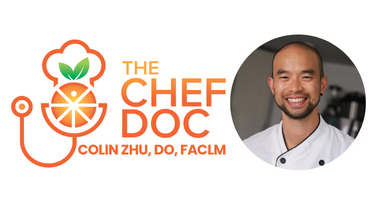Men’s Mental Health Matters: Breaking the Silence & Healing Through Food, Lifestyle, and Community
June is Men’s Mental Health Awareness Month—a crucial time to spotlight an issue that’s often overlooked, misunderstood, or kept in the shadows. According to the World Health Organization, over 264 million people worldwide live with depression, and men make up a significant portion. Yet, men are far less likely to seek help. In the U.S., men die by suicide at nearly four times the rate of women (CDC, 2023), often suffering in silence due to cultural expectations around masculinity, strength, and emotional stoicism, especially in Asian and Asian American communities.
It’s time for a change. Men’s mental health isn’t just a private struggle—it’s a public health priority. Taking care of your mental health is not weakness; it’s strength.
The Food-Mood Connection: How Nutrition Impacts Men’s Mental Health
Mental health is deeply connected to physical well-being, especially the gut. Did you know that about 90% of serotonin (the neurotransmitter that regulates mood, sleep, and energy) is produced in your gut, not your brain? What you eat truly affects how you feel.
Key research:
A 2018 review in Nutrients found that plant-based diets are linked to reduced symptoms of depression and anxiety. Whole food, plant-based nutrition supports mental wellness by:
Reducing chronic inflammation (linked to depression)
Stabilizing blood sugar (preventing mood swings)
Improving gut microbiome diversity (boosting mental clarity and emotional resilience)
Your plate isn’t just fuel—it’s a daily opportunity to nourish your gut and your mind.
Culinary Medicine: Cooking as Therapy and Self-Care
As a physician trained in Culinary Medicine, I’ve seen firsthand how the kitchen can be a space for reconnection and empowerment. Cooking isn’t just about meal prep—it’s mindfulness, self-care, and connection.
This month, try these self-care rituals:
Prepare a plant-based comfort meal (like lentil soup, veggie curry, or a grain bowl).
Sip lemon balm or chamomile tea before bed.
Journal while your food cooks—reflect on what food means to you.
Best Plant-Based Foods for Men’s Mental Wellness
Scientific research supports these plant-based foods for brain health and emotional balance:
Leafy Greens (spinach, kale, Swiss chard): Rich in folate and magnesium, linked to lower depression risk
Berries (blueberries, strawberries, blackberries): High in antioxidants, protecting brain cells
Walnuts: Excellent plant-based source of omega-3s for mood regulation
Oats & Whole Grains: Provide steady energy and support serotonin production
Legumes (lentils, chickpeas, black beans): Contain iron, zinc, and tryptophan (serotonin precursor)
Fermented Foods (kimchi, tempeh, miso): Support gut health and the gut-brain axis
Pumpkin & Sunflower Seeds: Packed with magnesium and zinc for nervous system support
Avocados: Healthy fats and B vitamins for stress management
Bananas: Vitamin B6 and potassium for a quick mood boost
Community & Conversation: The Heart of Healing
Recently, on my Thrive Bites Podcast, I sat down with Leo Xia, Michael Huynh, Jackson Xia, and Noel Garcia to discuss the unique challenges Asian men face around mental health. We explored identity, cultural shame, generational trauma, and the power of community.
“Healing starts when we feel seen, heard, and safe enough to speak.”
Watch or listen: Breaking the Stigma Around Men's Mental Health with Proud Asian Men
Let’s Normalize Men’s Mental Health Conversations
Whether you’re struggling with stress, burnout, isolation, or numbness, remember: you are not broken and you are not alone. Healing doesn’t always come in dramatic steps. Sometimes it’s a daily walk, a healthy meal, or opening up to a friend. Sometimes it’s listening to a podcast that helps you feel seen.
Free Resource: The 6 Pillars of Lifestyle Medicine
Want to take meaningful steps toward mental and physical wellness? Get instant access to my FREE video series on the 6 Pillars of Lifestyle Medicine—designed to help you build healthy habits from the inside out. Click here to sign up now

